Members
Dr Jeremy Burchardt
 (PI) Department of History, University of Reading j.burchardt@reading.ac.uk
(PI) Department of History, University of Reading j.burchardt@reading.ac.uk
In the last few years, I have become increasingly fascinated by the different ways we experience landscape – how it can subtly interfuse itself with sometimes quite profound aspects of our being, and the changes and continuities in this across time and space. Researching this elusive subject is challenging, especially in a historical context, but that makes it all the more intriguing and rewarding, as I hope to show in my forthcoming book, Lifescapes (CUP, e.p. 2021). I’ve also worked recently on children’s experiences of landscape, representations of the rural in children’s literature and on the English rural community movement. Most of my research focuses on England c.1870-c.1960.
Professor Paul Readman
(CI) Department of History, King’s College London
I am especially interested in the interrelationship between landscape and national identities, a subject I explored in my recent book, Storied Ground (Cambridge University Press, 2018). My new project investigates how the embodied experience of landscape has shaped the writing and understanding of history—and not just landscape history—between the late eighteenth and the late twentieth centuries. This builds on my longstanding interest in twentieth-century historical pageants—dressing up and re-enacting in past in specific locales, and by doing so ‘making the place the hero’ in the stories that communities told about themselves. Since 2013, I have led a major AHRC-funded project on these pageants, details of which are available here. I have also worked on the politics of the English ‘land question’ and on the lived experience of borderland landscapes.
Dr Paul Brassley
University of Exeter, paulbrassley@aol.com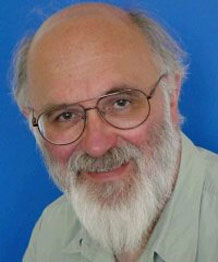
Much of my work has been concerned with the history of agriculture, especially, in recent years, with technical change in twentieth-century agriculture. Since farming is the major land-using activity in England and Wales, not to mention large areas of Europe, this has some significant implications for the landscape. In a couple of articles I drew attention to the importance of changing agricultural technologies for seasonal or ephemeral variations in landscapes: the replacement of binders by combine harvesters leading to the disappearance of stooked corn, and of hay by silage, with significant impacts on the flora of hay meadows, are just two examples.
Dr Paddy Bullard
 University of Reading
University of Reading
Paddy Bullard is Associate Professor of English Literature and Book History at the University of Reading. Formerly he was a research fellow at St. Catherine’s College, Oxford, and Senior Lecturer at the University of Kent. He is the author of Edmund Burke and the Art of Rhetoric (Cambridge University Press, 2011), and editor of The Oxford Handbook of Eighteenth-Century Satire (2019). With James McLaverty he co-edited Jonathan Swift and the Eighteenth-Century Book (Cambridge University Press, 2013) and, with Alexis Tadié, Ancients and Moderns in Europe (Voltaire Foundation, 2016). With Timothy Michael he is co-editor of volume 15 (Later Prose) of The Oxford Edition of the Works of Alexander Pope (forthcoming). He is editor of A History of English Georgic Literature (forthcoming) for Cambridge University Press.
Dr Andrew Butler
Swedish University of Agricultural Science, SLU, andrew.butler@slu.se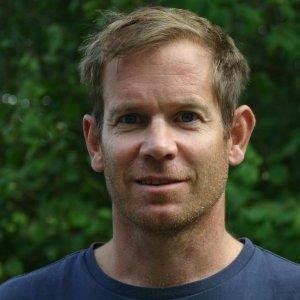
My research revolves around issues of landscape participation. This covers both how as individuals we participate in creating landscapes through everyday practices as well as our ability to engage in decision making that affect our landscapes. I am increasingly grappling with these issues through the impact of forest fire. When faced with dramatic and abrupt change that connections and engagement with landscape and landscape issues become all the more salient. My latest work investigates the consequences of forest fires from Sami landscape perspectives.
Dr Ollie Douglas
Curator of MERL Collections, Museum of English Rural Life
I have long been interested in different ways of thinking about landscape and have grappled with one major landscape-related issue throughout much of my career. This is the challenge of communicating a sense of place-based context for materials housed in museums, where things are often at a remove from the human and historic landscapes where they were made, used or collected. I am interested in how collections, public engagement, participatory and creative practice, and co-creation can help shape our landscapes into shared resources that can be productive, accessible, welcoming, inspiring and intelligible. I contribute towards various networks with an interest in landscape heritage. I sit on the Council of the Folklore Society, the Committee of the Rural Museums Network, the Intangible Cultural Heritage Committee of ICOMOS-UK, and am and am currently contributing towards partnership discussions convened by the Chilterns Conservation Board. I am President of the ICOM-affiliated International Association of Agricultural Museums.
Dr Keith Grieves
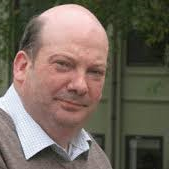 I have a research interest in the acquisition, preservation and use of public open space in the Surrey hills, including the personal experiences of visiting a diversified landscape and variegated tree country in districts beyond the topography of continuous buildings in London. Ramblers, bicyclists, naturalists, militia volunteers and pic-nic parties related variously to viewing near things and remote distance and constructed perspectives of open country beyond the regulated urban spaces of municipal parks and gardens. This interest has arisen from the policy and practice of landscape preservation to commemorate the fallen of the Great War, especially in the southern English counties. Most of my published work is located in the early twentieth century British social history. I taught History and Education at Kingston University, and have held a Research Fellowship at the Museum of English Rural Life, University of Reading.
I have a research interest in the acquisition, preservation and use of public open space in the Surrey hills, including the personal experiences of visiting a diversified landscape and variegated tree country in districts beyond the topography of continuous buildings in London. Ramblers, bicyclists, naturalists, militia volunteers and pic-nic parties related variously to viewing near things and remote distance and constructed perspectives of open country beyond the regulated urban spaces of municipal parks and gardens. This interest has arisen from the policy and practice of landscape preservation to commemorate the fallen of the Great War, especially in the southern English counties. Most of my published work is located in the early twentieth century British social history. I taught History and Education at Kingston University, and have held a Research Fellowship at the Museum of English Rural Life, University of Reading.
Professor Ysanne Holt
Department of Arts, Northumbria University, ysanne.holt@northumbria.ac.uk
From considerations of how early 20th century artists in Britain negotiated cultural identities 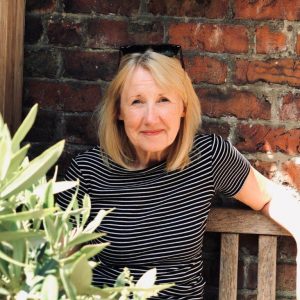 through forms of landscape, more recently I’ve been concerned with the imagining, representation and lived experience of the UK rural north, especially of marginal or ‘at edge’ sites such as island locations and the English- Scottish border region – as registered across diverse forms of visual and material culture. Currently I’m focusing on how visual artists who were embedded in rural areas through funded residency programmes and other arts in rural contexts initiatives from the mid-1970s and 80s responded to their environments and developed particular interactions and forms of participation within local communities at a time of considerable social change and economic decline.
through forms of landscape, more recently I’ve been concerned with the imagining, representation and lived experience of the UK rural north, especially of marginal or ‘at edge’ sites such as island locations and the English- Scottish border region – as registered across diverse forms of visual and material culture. Currently I’m focusing on how visual artists who were embedded in rural areas through funded residency programmes and other arts in rural contexts initiatives from the mid-1970s and 80s responded to their environments and developed particular interactions and forms of participation within local communities at a time of considerable social change and economic decline.
Professor Matthew Kelly
History, Department of the Humanities, Northumbria University
My recent work has focused on the environmental history of Britain and Ireland in the nineteenth and twentieth centuries, particularly how rural environments have been managed, often by the state, in order to deliver various public goods. I currently have two main projects on the go. I’m writing about five women environmental activists for Yale, trying to use their lives to tell a story about environmental politics and activism in Britain over the long twentieth century. I’m also working with the Rural Modernism research network, which includes a project on the decommissioning of twentieth-century energy infrastructure and co-editing a forthcoming issue of the Proceedings of the British Academy.
Professor Simon Mortimer
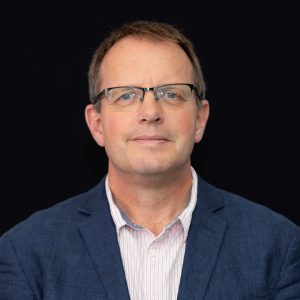 School of Agriculture, Policy & Development, University of Reading, s.r.mortimer@reading.ac.uk
School of Agriculture, Policy & Development, University of Reading, s.r.mortimer@reading.ac.uk
I’m particularly interested in how fixed factors of topography, geology and soils have influenced land cover and land use historically, and continue to do so. Most of my funded research examines the relationship between agricultural land use and biodiversity, and how to measure the success of incentive schemes, such as Countryside Stewardship, that reward farmers for delivering public goods and services. It could be argued that the cultural and historical aspects of such schemes are receiving diminishing attention, in favour of more functional aspects. I served on the Chilterns Conservation Board for 10 years, and through this became interested in metrics of landscape change and the characterisation of landscape quality.
Professor Gavin Parker
University of Reading, g.parker@reading.ac.uk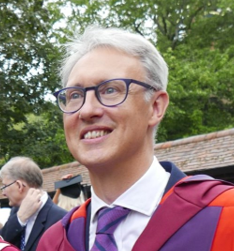
Gavin is Chair of Planning Studies at Reading. Widely published Professor Parker maintains a strong research interest in citizenship, participation and governance in land, planning and development. He is interested in the relationship between land and people and considerations of property rights and conflict over land use. This interest spans the urban and rural divide and a number of policy fields. He has maintained a thread of research that is concerned with interactions and tensions between actors involved in planning and development throughout his research career. Gavin also serves as a secretary of state appointed board member of the New Forest National Park Authority.
Dr Ingrid Pollard
Ingrid Pollard is presently in residence at Glasgow Women’s Library (GWL), as part of Glasgow International 2020. Having taken part in GI2018 with Deep Down Body Thirst, curated by Radclyffe Hall, Ingrid returns to Glasgow and the festival with a new exhibition exploring Lesbian history and culture.
Mixed-media artist and researcher, Dr Ingrid Pollard uses digital, analogue and alternative photographic processes, also incorporating printmaking, image-text and artist books, installation, video and audio. Pollard studied Film and Video at the London College of Printing and MA in Photographic Studies, University of Derby and holds a PhD from the University of Westminster.
Dr Eddie Procter
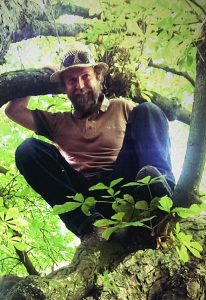
I am a postdoctoral landscape researcher combining a day job as a public footpath officer with freelance landscape, rights of way and access management, and heritage research, writing and consultancy. My Landscapism blog covers a broad range of landscape-related subjects, navigating the interface between landscape history and deep topography, and I also contribute to other sites, publications and events. My areas of research interest increasingly coalesce around the past and present of paths, walking and public access in the landscape.
Dr Rosemary Shirley
School of Museum Studies, University of Leicester, rosemary.shirley@le.ac.uk
My research centres on representations of the countryside in contemporary culture and the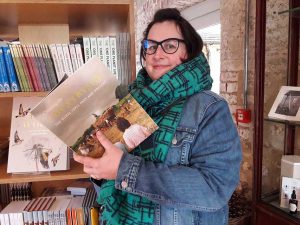 histories of these representations. I’m particularly interested how contemporary artists engage with landscape as a place that is lived in rather than simply looked at or visited. I have published widely on this subject including my book Rural Modernity, Everyday Life and Visual Culture (Routledge 2015). I was a partner on the research project: The Rural: Contemporary Art and Spaces of Connection, organised by the Whitechapel Gallery with other partners including the Istanbul Biennial, which culminated in The Rural Assembly conference in 2019. My writing was included in the Documents in Contemporary Art edition Rural, edited by Myvillages (Whitechapel/MIT Press 2019). In 2017 I co-curated the exhibition Creating the Countryside, at Compton Verney featuring the work of over 100 artists including Gainsborough, Turner, Constable, Grayson Perry, Ingrid Pollard, Anna Fox, Georgina Barney and Rebecca Chesney, I also co-edited the accompanying book Creating the Countryside: The Rural Idyll Past and Present (Paul Holberton 2017).
histories of these representations. I’m particularly interested how contemporary artists engage with landscape as a place that is lived in rather than simply looked at or visited. I have published widely on this subject including my book Rural Modernity, Everyday Life and Visual Culture (Routledge 2015). I was a partner on the research project: The Rural: Contemporary Art and Spaces of Connection, organised by the Whitechapel Gallery with other partners including the Istanbul Biennial, which culminated in The Rural Assembly conference in 2019. My writing was included in the Documents in Contemporary Art edition Rural, edited by Myvillages (Whitechapel/MIT Press 2019). In 2017 I co-curated the exhibition Creating the Countryside, at Compton Verney featuring the work of over 100 artists including Gainsborough, Turner, Constable, Grayson Perry, Ingrid Pollard, Anna Fox, Georgina Barney and Rebecca Chesney, I also co-edited the accompanying book Creating the Countryside: The Rural Idyll Past and Present (Paul Holberton 2017).
Dr Judith Tucker
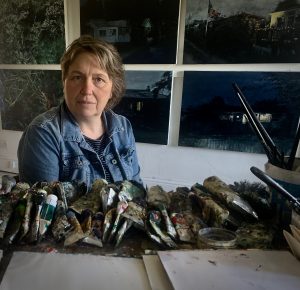 School of Design, University of Leeds, j.a.tucker@leeds.ac.uk
School of Design, University of Leeds, j.a.tucker@leeds.ac.uk
I am an artist and academic, my work explores the meeting of social history, personal memory and geography; it investigates their relationship through drawing, painting and writing. I have a long-term collaboration with the radical landscape poet Harriet Tarlo and together we have several place-based projects, including, since 2013 a longitudinal study of one of the last remaining functioning plotlands: the Humberston Fitties. I co-convene the network Land2 https://land2.leeds.ac.uk/ and am currently vice-chair of the Contemporary British Painting https://www.contemporarybritishpainting.com/
Related individuals/organisations
Kate Ashbrook
- Organisation/Institution: Open Spaces Society
- Email address: hq@oss.org.uk
- Website address: https://www.oss.org.uk/
Maxwell A. Ayamba
- Organisation: Sheffield Environmental Movement
- Institution: Department of American & Canada Studies, School of Languages & Culture, University of Nottingham
- Email address: Maxwell@semcharity.org.uk
- Email address: arxma2@nottingham.ac.uk
- Website address: www.semcharity.org.uk
Chilterns Conservation Board
- Organisation/Institution: The Chilterns Conservation Board is an independent statutory body working to conserve and enhance the natural beauty of the Chilterns AONB, increasing the understanding and enjoyment of its special qualities and fostering the social and economic wellbeing of local communities.
- Email address: office@chilternsaonb.org
- Website address: www.chilternsaonb.org
Joe Doak
- Organisation/Institution: Henley Business School, University of Reading
- Email address: andrew.doak@pgr.reading.ac.uk
- Website address: https://www.henley.ac.uk/people/person/joe-doak-1
Dr Clare Hickman
- Organisation/Institution: Newcastle University
- Email address: clare.hickman@ncl.ac.uk
- Website address: drclarehickman.wordpress.com
Dr Victoria Jenkins, Associate Professor
- Organisation/Institution: Hillary Rodham Clinton School of Law Swansea University
- Email address: v.a.jenkins@swansea.ac.uk
- Website address: https://www.swansea.ac.uk/staff/law/jenkins-v-a/
Dr John Morgan
- Organisation/Institution: School of Geographical Sciences, University of Bristol
- Email address: john.morgan@bristol.ac.uk
- Website address: https://research-information.bris.ac.uk/en/persons/john-e-morgan
Dr Katrina Navickas
- Organisation/Institution: University of Hertfordshire
- Email address: navickas@herts.ac.uk
- Website address: https://chatterleywhitfield.online/projects/
Anooshka Rawden
- Organisation/Institution: South Downs National Park Authority
- Email address: anooshka.rawden@southdowns.gov.uk
- Website address: www.southdowns.gov.uk
Dr Eirini Saratsi
- Organisation/Institution: SAGES, University of Reading
- Email address: e.saratsi@reading.ac.uk
Dr Sarah Spooner
- Organisation/Institution: University of East Anglia
- Email address: s.spooner@uea.ac.uk
- Website address: https://people.uea.ac.uk/s_spooner
